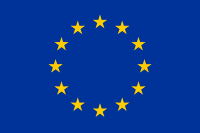8 Impact Areas
Explore the eight impact areas of digital cultural participation
Soft power is an area of impact of digital cultural participation whose degree of extension and branching is incredibly broad and connected, with positive interactions with all the other seven dimensions presented. This impact area regards, in general, the power of influence, that people can exercise through collective practices in the cultural and creative industries and sectors, in spreading contents/identities/trends/behaviours “through attraction or persuasion rather than coercion”; and the digital platforms are the most important contemporary sounding board for this, in particular when the rules of the economy of attention are understood, subverted and exploited in the best way for influencing from below.
Widespread participation in artistic and cultural production determines a strong impact on increasing the visibility, appeal, credibility, reputation, and authority of a company, country or any organisation or institution that promotes such practices. In macroeconomic terms, this is visible thinking about the enhancement at the "brand" level that a country obtains as a consequence of active cultural participation. The enhancement of perception of the "country brand" can produce positive externalities on the whole of national products, and this is also true for the bad reputation that a community can generate, especially online. This power that people have in their hands, boosted by the digital possibilities, contributes to the definition of a shared “Ethics of open sharing”. For CHIs, cultural organisations and others, sharing digital cultural heritage alongside descriptive metadata might be offensive to an individual or a community (such as heritage objects obtained through violent actions, or catalogued through patriarchal or colonialist gaze) considering, for instance, the risk of potential algorithmic bias. By enacting a sort of social control (and orientation of collective ethics) against institutions, politics or industries that perpetuate injustice, discrimination or actions of cultural appropriations, digital communities can gain weight in negotiations. This should lead CHIs to reflect on the need of embracing ethical practices of curating, archiving and sharing digital collections.




